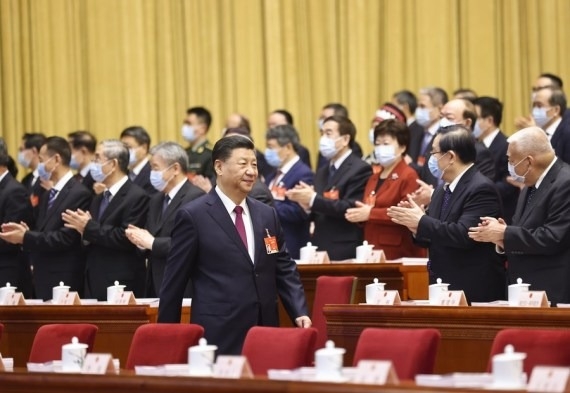For the first time in three decades, China’s growth would lag behind the rest of the Asia-Pacific region…reports Asian Lite News
The Chinese economy is in trouble and the road to recovery may be a long one.
Much of it was expected as the global economy, which buys Chinese products, has been slowing down. China could barely avoid a contraction in the June 2022 quarter. However, it was not expected that Beijing would fail to live up to its promises by such a wide margin, reported Financial Post.
In its latest report, the World Bank projected China to grow by a mere 2.8 per cent in 2022. Moreover, for the first time in three decades, China’s growth would lag behind the rest of the Asia-Pacific region.
Interestingly, Capital Economics predicted a major slowdown in the Chinese economy at least two years before the COVID-19 outbreak. The pandemic helped consolidate the trend.
“Construction, a key engine of China’s growth and commodity demand, will slow substantially over the next few years, whether or not the economy escapes the current crunch unscathed,” Chief Asia Economist of the outfit, Marks Williams said in September 2021.
The note was published after the Evergrande crisis unfolded in China in mid-2021. The title of his report was precise, “Property crunch will be followed by lasting decline.”
The link between property or real estate and economic growth is simple. Real estate accounts for 10 per cent of the workforce, 25 per cent of total fixed asset investment and 29per cent of GDP. If real estate is down, everything else is down, reported Financial Post.
Meanwhile, China’s steel production is down by 5.7 per cent during the first eight months of 2022. China is the world’s largest steel producer. Clearly, the declining global demand is hurting China.
But that’s not all. Monthly data for August show declining retail sales inside China as well and Capital Economics expects further declines in September. Reduced consumer demand (both exports and domestic sales) is telling on corporate profit, reported Financial Post.
With the US Federal Reserve implementing another 75 bps rate hike, sacrificing growth opportunities, to tame inflation, and Europe is reeling under high inflation and slow growth; things might get more difficult for China in the days to come.

Middle-income trap
China’s rights abuses and bad reputation of its tech companies have resulted in creating a negative business environment that is holding back China in the middle-income trap.
Chinese President Xi Jinping’s regime is faced with an imminent challenge looming large in China, the ‘middle-income trap’ in which the country’s economy becomes stuck and never shifts into a higher gear, the Europe Asia Foundation reported.
China, a population of 1.4 billion, has one of the quickest economic success stories in history however its decline has now increased its financial instability. These factors range from China’s authoritarian regime, unilateralism, military expansionism, violation of human rights and lack of credibility of its tech companies.
Another cause of concern for these companies and businesses who now face the ‘middle-income trap’ is Xi Jinping who has become the ultimate and overarching authority on business operations and politics in China.
All of this has made businesses and companies wary of dealing with China. China’s historic development process. According to a 2012 report, the World Bank and China’s state researchers noted that institutional reforms are needed if the country’s economy is to stride on a path of development.
The primary policy suggestion, therefore, was to “rethink the role of the state and the private sector to encourage increased competition in the economy,” as per the media portal.
China’s population is ageing and the skilled workers are shrinking in numbers. This grim picture has created a demand-supply mismatch in the labour market. Regards to the foreign companies lack of patent protection and fragile China-centric supply chains have created hesitancy them.
To make matters worse for China is the US-China trade dispute. As many as 50 companies have moved production out of China, the media portal reported citing the Nikkei Asian Review.
Manufacturers like Apple have therefore started shifting their production, though on a trial scale, to countries like Vietnam. The golden days of the dragon as the go-to hub manufacturing for the West seem to be over for good reported the portal. (ANI)

Leave a Reply